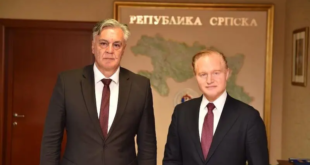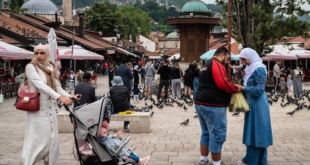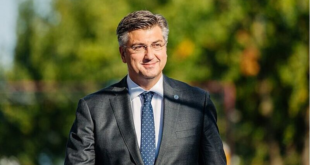The Hague Tribunal has rejected Radovan Karadzic’s appeal of the Tribunal’s decision to forbid the publishing of one of his responses in a written interview with Le Monde.
After the Registrar’s Office of the International Criminal Tribunal for the former Yugoslavia, ICTY, reviewed a copy of the interview Karadzic wanted to pass to a Le Monde journalist, it returned the transcript to the former Republika Srpska president, asking him to “work on it some more and reformulate it”.
This, due to a contentious question pertaining to the alleged involvement of UNPROFOR in arming individuals during the war in Bosnia and Herzegovina.
“The Registrar has determined that Karadzic’s proposed answer is detrimental to UNPROFOR and the United Nations and it can also do harm to the mandate of the Hague Tribunal,” the Court’s decision reads.
In his appeal to the initial decision, submitted on September 10, 2009, Karadzic said that there was nothing in his answers that “could do harm to the Tribunal’s reputation,” adding that “the Registrar’s decision is therefore illogical”.
“Karadzic considers that the Registrar’s decision annuls his basic right to freedom of speech. Karadzic considers that freedom of speech is the basis of a democratic society. As such, it refers to shocking, offensive and disturbing pieces of information and not only to the ones considered non-offensive,” Karadzic wrote in his appeal.
The Hague Prosecution has charged the former Bosnian Serb leader with genocide, crimes against humanity and violation of the laws and customs of war committed in Bosnia and Herzegovina from 1992 to 1995.
He was arrested in Serbia on July 21, 2008, after having been on the run for more than a decade. His trial began on October 28 with the Prosecution beginning its introductory arguments.
In the Tribunal’s decision rejecting Karadzic’s appeal, Judge Mehmet Guney said that Karadzic’s answer to a question pertaining to the alleged participation of UNPROFOR in arming individuals in Bosnia and Herzegovina during the war contained “grave accusations, which might do serious harm to the reputation of the UN”.
“Karadzic’s accusations, which are undefined and unclear in the interview itself, will probably become one of the contentious issues during the course of the trial. I consider that courtrooms should, as a rule, be the only place where we can discuss contentious issues pertaining to the trial in order to ensure that all parties have a chance to confute the allegations made by the opposing parties,” Judge Guney said.
The decision adds that Karadzic’s right to freedom of speech is not undermined “considering the fact that the Registrar has refused to allow publication of one minor and insignificant part of the entire interview”.
Karadzic’s trial is due to continue on November 2, 2009, when the Prosecution will continue presenting its introductory arguments.
 Eurasia Press & News
Eurasia Press & News



